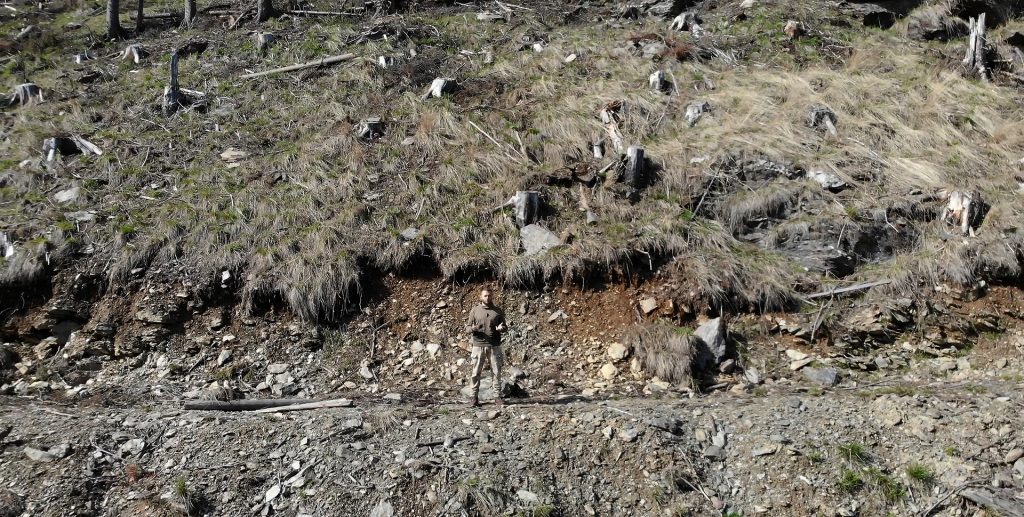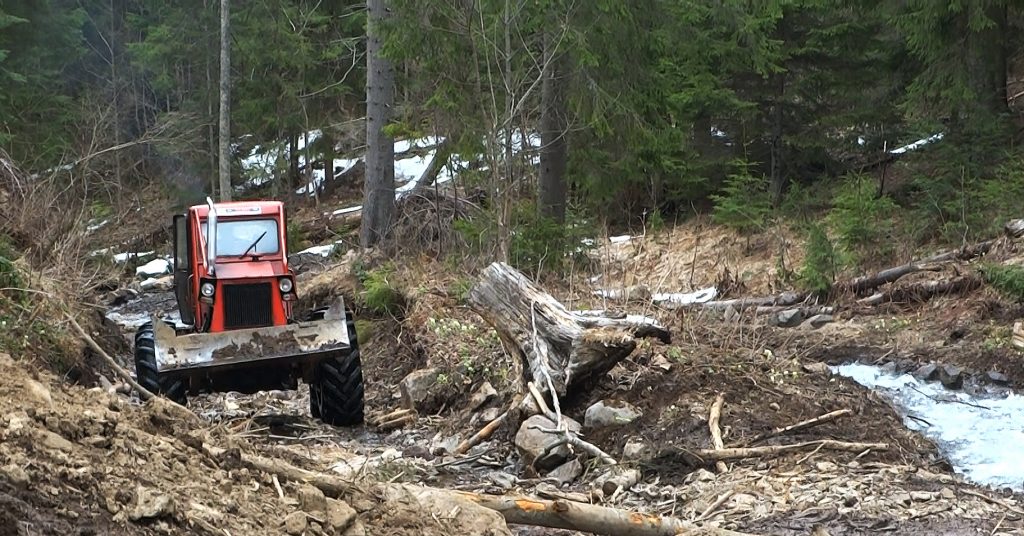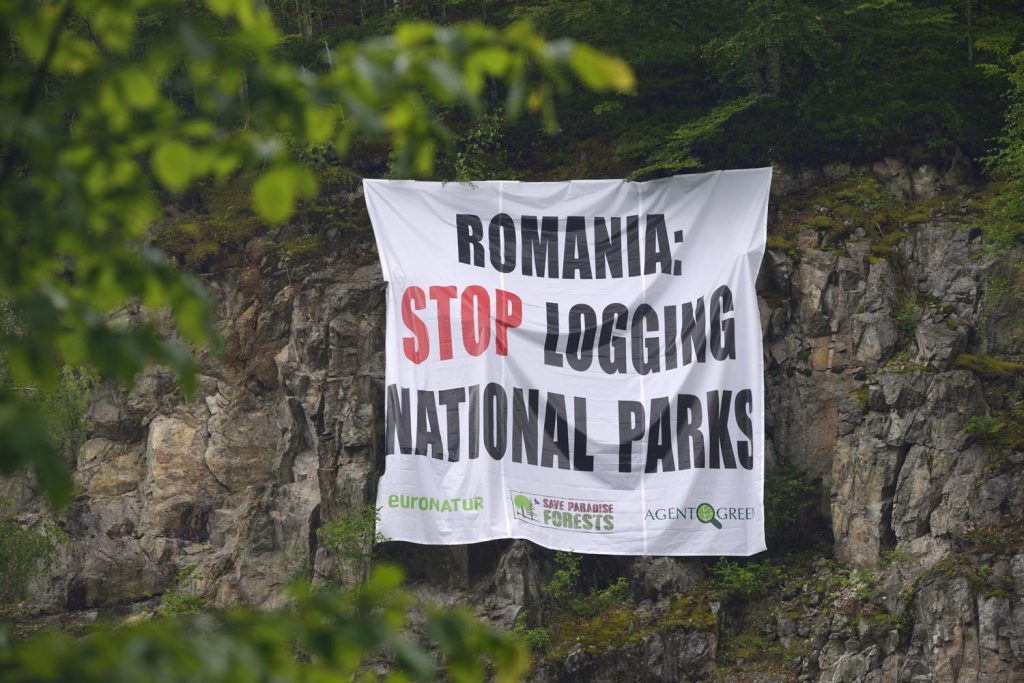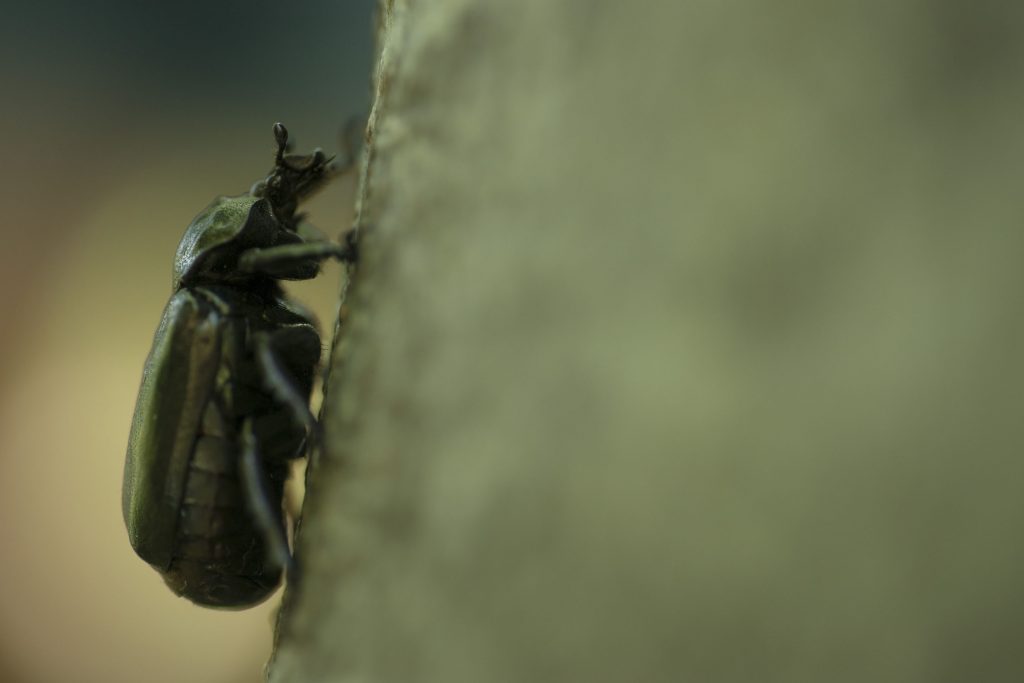Romania – Europe’s largest tracts of old growth forests in Romania are being deliberately and illegally destroyed by state forest agency Romsilva. A new video investigation reveals hard proof of large scale forest devastation in Calimani National Park in the eastern Carpathians. Unofficially, in 2017 alone, about 70.000m3 of wood were logged in the protected area, an equivalent of 200 ha of old growth forests.
“The situation in Calimani National Park is completely out of control. The level of mismanagement and nature destruction, driven by Romsilva, is unacceptable,“ Agent Green and EuroNatur Foundation conclude. They urgently call on the Romanian Ministry for Environment to immediately dismiss Romsilva from managing protected areas, to stop any industrial logging in national parks and to take decisive action to save the EU’s largest wild forest ecosystems.
Agent Green investigator and journalist Andrei Ciurcanu visited the Calimani National Park during several investigations between 2017 and 2018. He detected scandalous devastation in the middle of the protected area: large clearcuts, brutally built forest roads, funicular lines, polluted and destroyed alpine river beds and muddy valley bottoms cleared for vast wood depots – just adjacent touristic trails. The responsibility for this disaster lies with Romsilva, who controls the national park management and administers wood exploitation in the national park.
OUT OF CONTROL #ep4 Calimani National Park from AGENT GREEN on Vimeo.
Besides the massive loss of trees, the investigation video also shows how the logs are being dragged through river beds, thereby destroying these once pure freshwater ecosystems. The logging spreads over several square kilometers and whole mountain ranges are now clear cut.
National park rangers are familiar with these illegal practices. But they obviously fear losing their job if they would administer fines. A forester, who talks only on the protection of his identity, gives an example of the functioning of the malicious system: 20 years ago, after a large wind-fell, „shady things“ happened. „Romsilva people promised wood to a Turkish company. They stalled removal of bark beetle infested trees for almost 2 years. This allowed the bark beetle to spread. At the end they could log twice as much as planned.“ This gigantic logging area is still an enormous ecological wound and forest recovery is slow because of the size of the clearing.
Peter Abran was a member of the park’s Scientific Council and a specialist of Mures Environmental Agency. He knew about the destruction and claims that he and other members were dismissed from the council after opposing logging inside the park. During a phone interview with Agent Green, Abran confirms that logging in parts of the park is illegal because no environmental permit has been issued since 2010: “Romsilva illegally exploited the forest in the national park. No ministerial order allows the logging.“
The National Environmental Guard specialists confirmed Abran’s allegations. After a survey scheduled this year, the Guard officials stated that logging plans did not have an environmental permit and Romsilva has to obey the regulations regarding the conservation and protection of nature inside the national park.
“Environmental Minister Gratiela Gavrilescu must act now! Romsilva is acting like the gravedigger of our precious natural forests. These forests are our pride and important for water, air, recreation and are crucial to the survival of many endangered species. Romsilva’s logging has become a national security threat. Thus Romsilva has to be dismissed from the management of protected areas immediately. Romania will hold the EU-presidency in 2019. The forest destruction shadow must be removed beforehand to avoid shaming our nation,” says Gabriel Paun, President of Agent Green.
“The logging tragedy in Romania has been watched and ignored by many key decision makers for way too long. This is Europe’s prime nature crisis. Climate change will increasingly affect our forests with droughts and wildfires, as we experienced already last summer. Therefore we need to preserve all remaining intact natural forests! A few weeks before the critical Katowice Climate Change Conference will take place we call on the EU and the world to look at Romania and become active!“
Agent Green and EuroNatur urge the Romanian Environmental Minister to immediately stop commercial logging in national parks, dismiss Romsilva from managing national parks and other protected areas, implement modern and nature conservation oriented management systems, provide adequate funds to properly manage protected areas (including Natura 2000 sites) and to compensate private land owners in protected areas for nature conservation objectives.
Today, a new petition was launched, addressing the Romanian Prime Minister, who will hold the Presidency of the EU-Council in the first half of 2019. The petition calls for immediate action to halt the destruction of Europe’s last large virgin forests in Romania. It will be delivered to the Romanian Government and forwarded to the European Commission and the European Parliament.
Here you can access the petition page.
The episodes #1, 2, and 3 of the “Out of Control” series can be viewed here.





